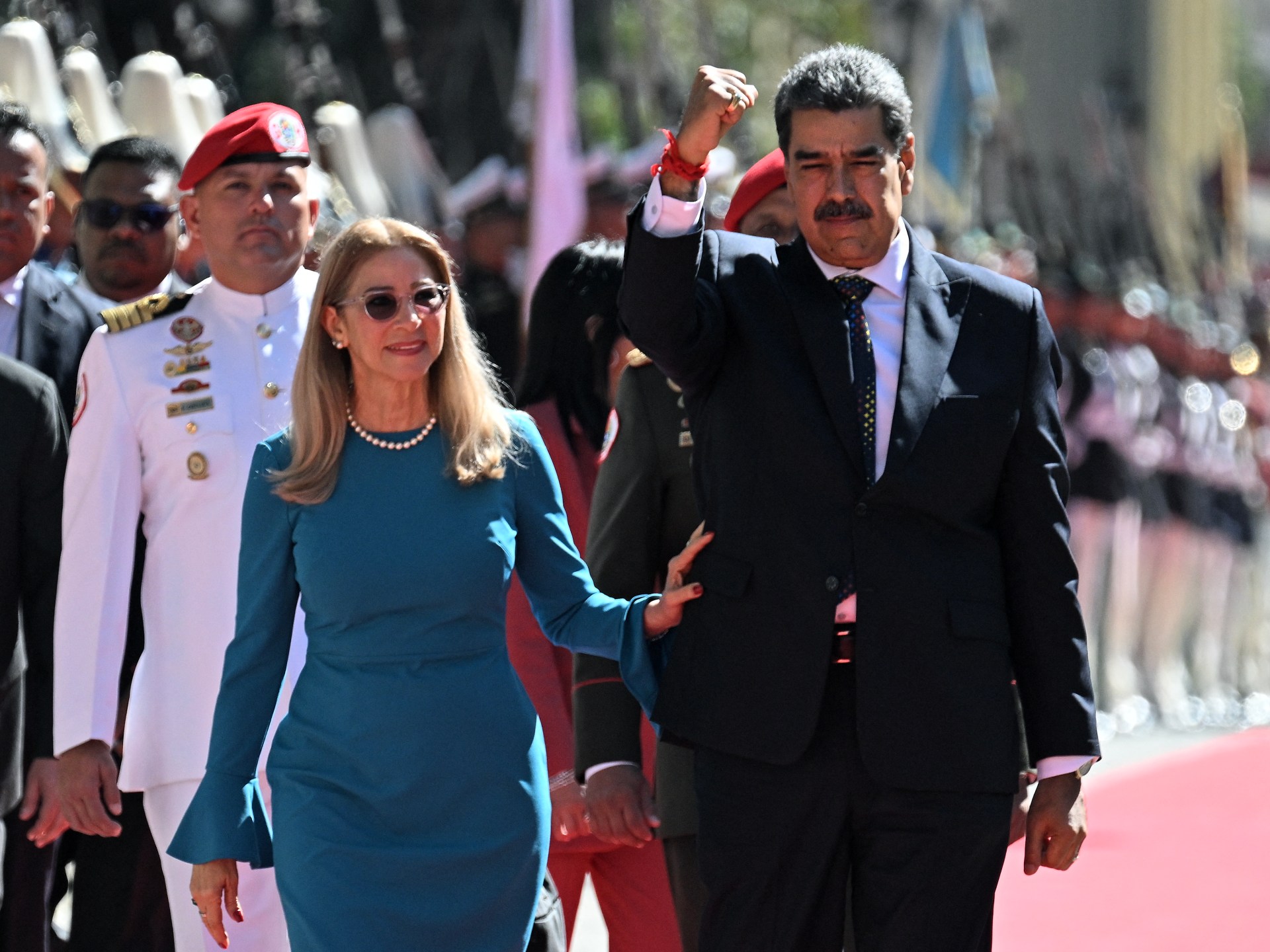After a contentious election in which Edmundo Gonzalez, the president of Venezuela, claimed voter fraud and won, he was sworn in for a third six-year term.
By launching a new term on Friday, Maduro defies US sanctions and international pressure, which have recognized Gonzalez as the winner of the July election.
“May this new presidential term be a period of peace, of prosperity, of equality and the new democracy”, Maduro said, pledging to comply with the laws of the country. “I swear on history, on my life, and I will fulfil]my mandate]”.
The opposition leader Maria Corina Machado, who had a rare public appearance to protest his rule, made a speech at Maduro’s inauguration the day before. Machado’s team said she was briefly detained during the demonstration.
In a social media post following her release, Machado stated, “I am now in a safe place and with more determination than ever before to continue with you until the end.”
Maduro, a former bus driver, rose to power after the death of left-wing leader Hugo Chavez in 2013. His administration has been tarnished by accusations of authoritarianism as well as economic and political crises.
In 2018, for instance, he faced another contested presidential election, with several top opposition leaders barred from competing in the race.
In the aftermath, opposition leader Juan Guaido challenged Maduro’s victory and claimed the presidency. In 2019, the US and several of its allies in the Western Hemisphere recognised Guaido , as the legitimate president of Venezuela.
That same year, Washington expanded its sweeping sanctions against Venezuela, deepening its economic problems. Nearly 7.7 million people have fled the country, some due to allegations of political repression, others due to the economic instability.
The incumbent quickly declared victory in the elections, claiming that he had won 51% of the vote, giving the opposition hope of peacefully toppling Maduro.
The country’s electoral authorities have sided with Maduro, though they have not released the usual breakdown of results from Venezuela’s polling stations, fuelling criticism over the lack of transparency.
The opposition, meanwhile, has published what it claims are official tally sheets, showing that Gonzalez won by a large margin.
Maduro and the election results have also been questioned by a number of left-wing leaders in South America.
In the weeks that followed Maduro’s victory in the July 28 presidential election, there were numerous demonstrations, but a government crackdown has since slowed down the demonstrations.
An estimated 2, 000 people were arrested and 25 killed during the post-election demonstrations.
Still, the opposition has sought to maintain pressure on the Maduro government, calling for protests this week in the lead-up to the inauguration. On Thursday, more than 100 demonstrators gathered for Machado, though the crowd size was noticeably smaller than the post-election protests.
Gonzalez, who fled the country and received asylum in Spain, was arrested on a warrant in September and was later accused of conspiring with foreign forces to overthrow the president by Maduro’s government.
As part of a tour of the Americas region, Gonzalez, a former diplomat, made a week-long trip to the US where he met with President Joe Biden.
Gonzalez and Biden “deeply concern about Nicolas Maduro and his representatives’ unjustifiable and indiscriminate use of repression against peaceful protesters, democracy activists, and civil society,” according to the White House.

Leave a Reply